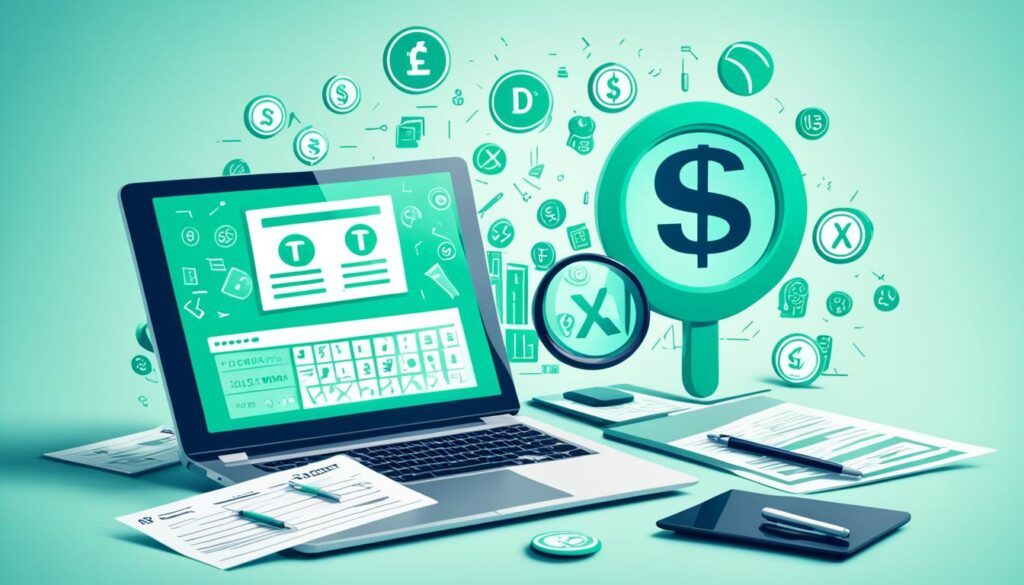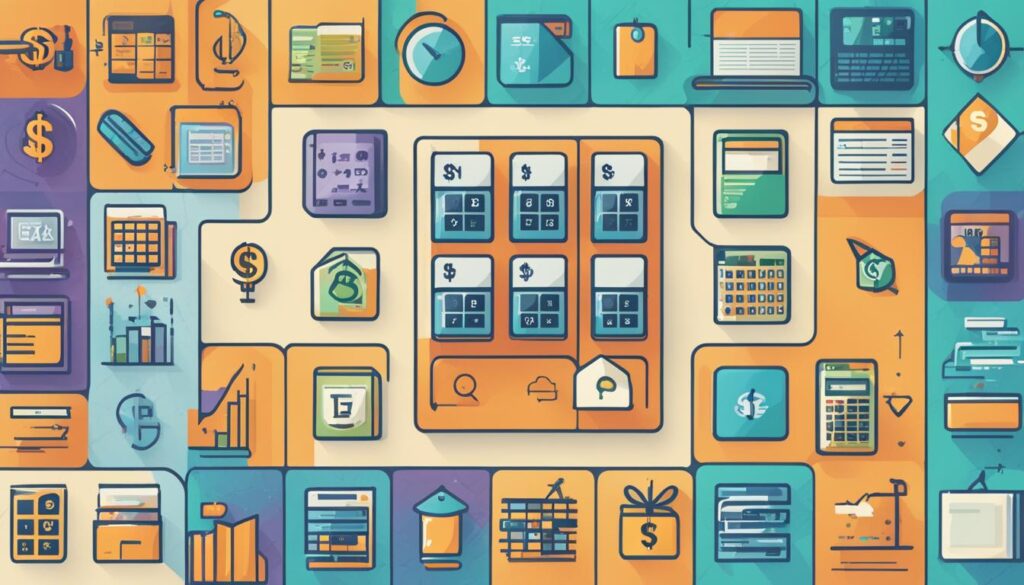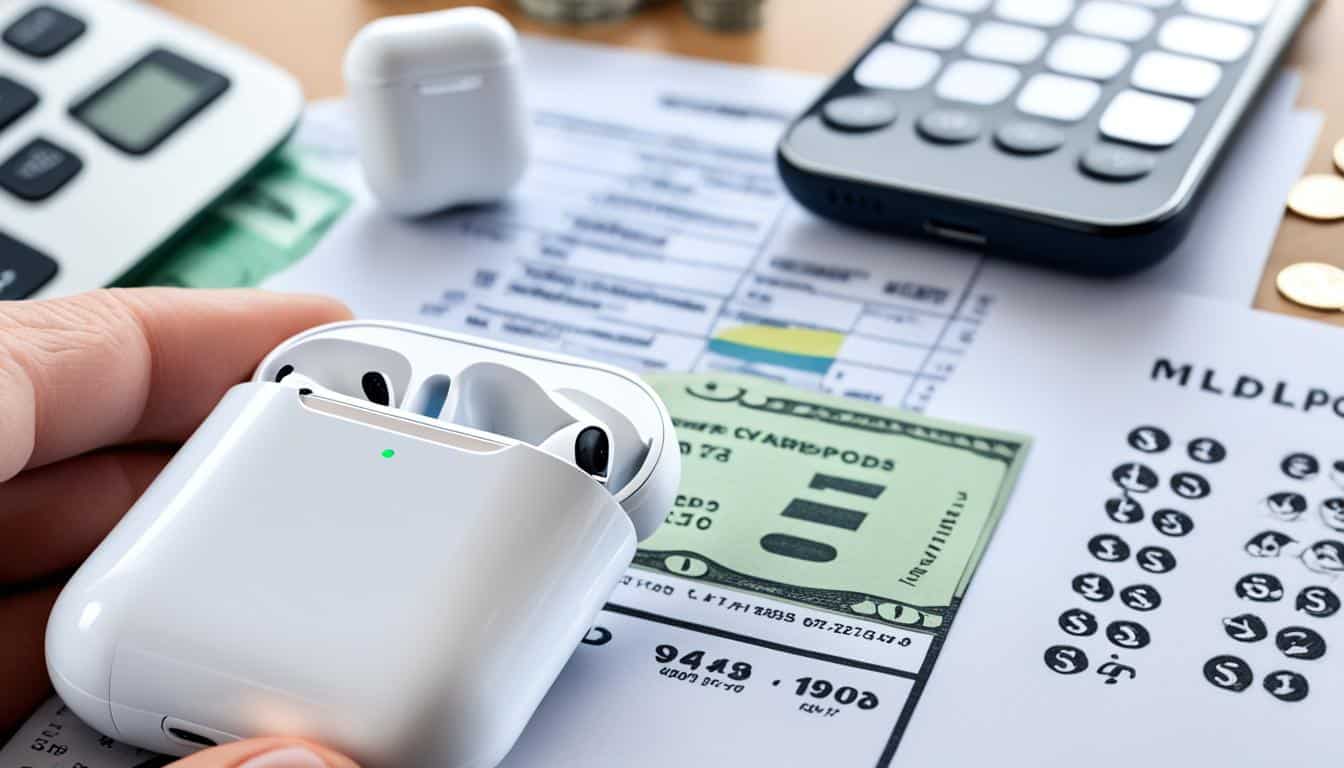When it comes to tax deductions, every penny counts. And as technology becomes an integral part of our daily lives, you may be wondering if you can claim your trusty AirPods as a tax write-off. After all, they’re not just a trendy accessory, but also a useful tool for many professionals.
But can you really write off AirPods on your taxes? The answer may surprise you. While tax reform has eliminated the deduction for unreimbursed employee business expenses, there are still opportunities for certain business owners to claim deductions for their high-tech devices. To find out if your AirPods are eligible, it’s crucial to understand the rules and guidelines set by the IRS.
Key Takeaways:
- While unreimbursed employee business expenses are no longer tax-deductible, business owners may still be able to deduct the cost of certain high-tech devices.
- To determine if your AirPods are eligible for a tax deduction, you need to meet the IRS requirements and guidelines.
- Cell phones, computers, internet usage, software expenses, and gadgets may also be eligible for tax deductions if they are used for business purposes.
- Keeping detailed records and consulting with a tax professional can help you optimize your tax benefits and maximize your deductions.
- Understanding the timing and limits of deductions can also help you make informed decisions about when and how to deduct your business expenses.
Cell Phones: Deducting the Cost
When it comes to running a business, your cell phone can be a crucial tool for staying connected and productive. The good news is that you may be eligible to deduct the costs of your cell phone as a business expense, reducing your taxable income and potentially saving you money. Here’s what you need to know about the tax deductions for cell phones.
If you use your cell phone exclusively for business purposes, both the cost of the phone equipment and the monthly service fees are tax-deductible. This means you can deduct the full amount of your cell phone expenses from your business income, lowering your overall tax liability.
But what if you use your phone for both personal and business use? In that case, you can only deduct the portion that is used for business. For example, if you use your phone 50% for business and 50% for personal use, you can deduct 50% of the costs. It’s important to keep accurate records of your cell phone usage to support your deduction claims.
Calculating Your Deduction
To calculate your deduction, you’ll need to determine the percentage of your cell phone usage that is for business purposes. This can be based on factors such as the number of calls, texts, emails, and other communication activities related to your business. You can also consider the time spent on business-related apps, internet browsing, and any other activities directly related to your business operations.
Once you have determined the percentage, you can apply it to the total costs incurred, including the purchase price of the phone, any accessories, and the monthly service fees. For example, if your total cell phone expenses for the year amount to $1,200 and your business usage is 75%, you would be able to deduct $900 as a business expense.
| Cell Phone Expenses | Total Cost | Percentage for Business Use | Deduction Amount |
|---|---|---|---|
| Phone Equipment | $800 | 75% | $600 |
| Monthly Service Fees | $400 | 75% | $300 |
| Total Deductible Amount | $900 | ||
By deducting your cell phone costs, you can not only reduce your tax liability but also free up some funds to reinvest in your business or cover other expenses. Remember to consult with a tax professional or use specialized tax software to ensure that you understand the specific rules and guidelines set by the IRS for deducting cell phone expenses.
Computers, Laptops, and Tablets as Business Expenses

When it comes to deducting computer expenses, laptops, and tablets as business expenses, the key factor is the necessity, customs, and reasonableness of these devices for your business, as determined by the IRS. If you work in a computer-related industry, justifying the need for these devices is generally straightforward. However, even if you work in a different industry, you may still be eligible for tax deductions if you can demonstrate that these devices are directly related to your business activities.
Whether you’re a graphic designer, a writer, or a consultant, having a reliable and efficient computer, laptop, or tablet is crucial for your work. These devices enable you to carry out your tasks efficiently and effectively, improving your productivity and ultimately benefiting your business.
But how do you determine if your computer, laptop, or tablet qualifies for tax deductions?
- First, consider the nature of your business and the role these devices play in your operations:
Table 1: Qualifying Devices and Eligible Deductions
| Device | Eligibility for Tax Deductions |
|---|---|
| Computer | Typically qualifies for tax deductions if necessary for business activities |
| Laptop | Usually qualifies for tax deductions if necessary for business activities |
| Tablet | May qualify for tax deductions if directly related to business activities |
As you can see from Table 1, computers and laptops are generally easier to justify for tax deductions as they are commonly used in various industries. Tablets, on the other hand, may require a stronger argument to establish their direct relevance to your business activities. By providing detailed documentation and demonstrating how the tablet enhances your workflow or improves client interactions, you can increase your chances of claiming deductions for tablets.
Remember, it’s essential to keep accurate records of your expenses and consult with a tax professional or use tax software to ensure that you comply with IRS guidelines. This will help you maximize your tax deductions and avoid any potential issues during an audit.
So whether you’re crunching numbers, drafting proposals, or collaborating with clients, your computer, laptop, or tablet can potentially qualify for tax deductions, reducing your taxable income and improving your bottom line.
Make sure to leverage the tax benefits of these essential business tools, and remember that the more you invest in your business’s success, the more you can potentially deduct from your tax bill.
Internet Usage: Deducting Connectivity Costs
When it comes to running a successful business, staying connected to the internet while on the go is crucial. Whether you’re traveling for meetings, attending conferences, or working remotely, having reliable internet access is essential. The good news is that you can deduct the costs of internet usage for business purposes, even when you’re away from your office.
If you incur expenses for connectivity on airplanes or in hotels while traveling for business, these costs are tax-deductible. The key is to ensure that your internet usage is directly related to your business activities. This means that if you’re using the internet to communicate with clients or colleagues, conduct research, or perform any other tasks that contribute to your business’s operations, you can deduct the expenses.
Here are a few examples of deductible internet expenses:
- Wi-Fi fees charged by hotels or conference venues
- In-flight internet charges during business travel
- Mobile hotspot fees
It’s important to keep proper documentation of these expenses. Retain receipts or invoices that clearly indicate the date, location, and purpose of the internet usage. This will help support your deduction in case of an audit and ensure that you maximize your tax benefits.
Remember, deducting internet costs for business use can help reduce your taxable income and potentially save you money at tax time. So, don’t overlook this valuable tax deduction!
Software Expenses: What Qualifies for Deductions

When it comes to deducting software expenses for your business, understanding the rules and guidelines can help you optimize your tax benefits. Not all software programs are eligible for deductions, so it’s important to know which ones qualify.
Gaming software, for example, generally does not qualify for deductions unless it is essential for your work in the gaming industry. However, there are software programs that do qualify, such as Quickbooks Self-Employed and TurboTax Self-Employed, which are specifically designed for business use.
If you use standard office suite programs like Microsoft Office or Google Workspace, you can also deduct the costs associated with these software programs. These programs are considered essential for business operations and are therefore eligible for tax deductions.
It’s important to note that if you use software for both business and personal purposes, only the portion used for business can be deducted. For example, if you use accounting software 70% of the time for business purposes and 30% of the time for personal use, you can only deduct 70% of the software expenses.
To get a better understanding, here’s a table summarizing the deductibility of different types of software expenses:
| Software | Deductibility |
|---|---|
| Gaming Software | Not eligible, unless essential for the gaming industry |
| Quickbooks Self-Employed | Eligible for tax deductions |
| TurboTax Self-Employed | Eligible for tax deductions |
| Microsoft Office | Eligible for tax deductions |
| Google Workspace | Eligible for tax deductions |
Maximizing Your Software Deductions
To make the most of your software deductions, keep detailed records of your software expenses and usage. This will help you accurately calculate the portion that can be deducted for business purposes. Additionally, consult with a tax professional or use tax software to ensure you are claiming the deductions correctly and optimizing your tax benefits.
Timing and Limits: When and How to Deduct Gadgets

Now that you’re aware of the various gadgets that can be tax deductible, let’s delve into the timing and limits for deducting these valuable assets. Timing is everything, especially when it comes to maximizing your tax benefits. And of course, it’s vital to understand and adhere to the IRS rules for deducting gadgets.
Under IRC Sec. 179, you have the option to deduct the full cost of a gadget in the year it was acquired. This means that if you purchase a new phone, tablet, or computer for your business, you have the opportunity to claim the entire expense upfront.
Most business owners opt for this upfront deduction because it provides immediate tax savings. The benefit of deducting the full cost of the gadget in the acquisition year allows you to offset your taxable income and reduce your overall tax liability.
However, if deducting the entire cost in one year doesn’t align with your financial strategy, you can choose to amortize the expense over several years. This might be advantageous if you anticipate higher income in future years and want to spread out the tax benefits.
It’s important to note that the IRS has limits on gadget deductions. Under tax reform, you can deduct up to your business’s net income or $1,160,000 (whichever is smaller) for qualified business equipment in the year 2023.
Examples of Qualified Business Equipment
| Category | Examples |
|---|---|
| Computers | iMac, Dell XPS |
| Software | Quickbooks, Adobe Creative Cloud |
| Office Furniture | Desk, chair, filing cabinet |
| Vehicles | Large vans or trucks used for business |
Keep in mind that larger vehicles used for business purposes, such as vans or trucks, may also qualify for deductions. These limits exist to ensure that deductions are reasonable and aligned with the overall objective of business expense deductions.
Timing your gadget deductions appropriately and understanding the limits set by the IRS will help you make informed decisions and maximize your tax benefits. Consult with a tax professional or use tax software to navigate the complexities of gadget deductions and ensure compliance with IRS regulations.
Tips for Maximizing Tax Deductions on Business Expenses
When it comes to maximizing tax deductions on your business expenses, keeping meticulous records and receipts is key. These documents will serve as evidence to substantiate your expenses if you happen to be audited by the IRS. So, grab a folder or a cloud storage solution and create a system to organize all your receipts and invoices. Your future self will thank you!
In addition to record-keeping, seeking professional advice or utilizing tax software can ensure that you’re aware of all the deductions available to you. Tax professionals have a wealth of knowledge and can guide you through the complex labyrinth of tax regulations, helping you identify and claim every deduction that applies to your business. Alternatively, tax software can provide step-by-step guidance, ensuring accuracy and efficiency in your tax return process.
Remember, the goal is to optimize your tax benefits. By taking full advantage of eligible deductions, you can significantly reduce your taxable income and potentially save a substantial amount of money come tax time. So, whether it’s consulting with a tax pro or leveraging tax software, be proactive and stay informed to harness the full power of tax deductions for your business expenses.








